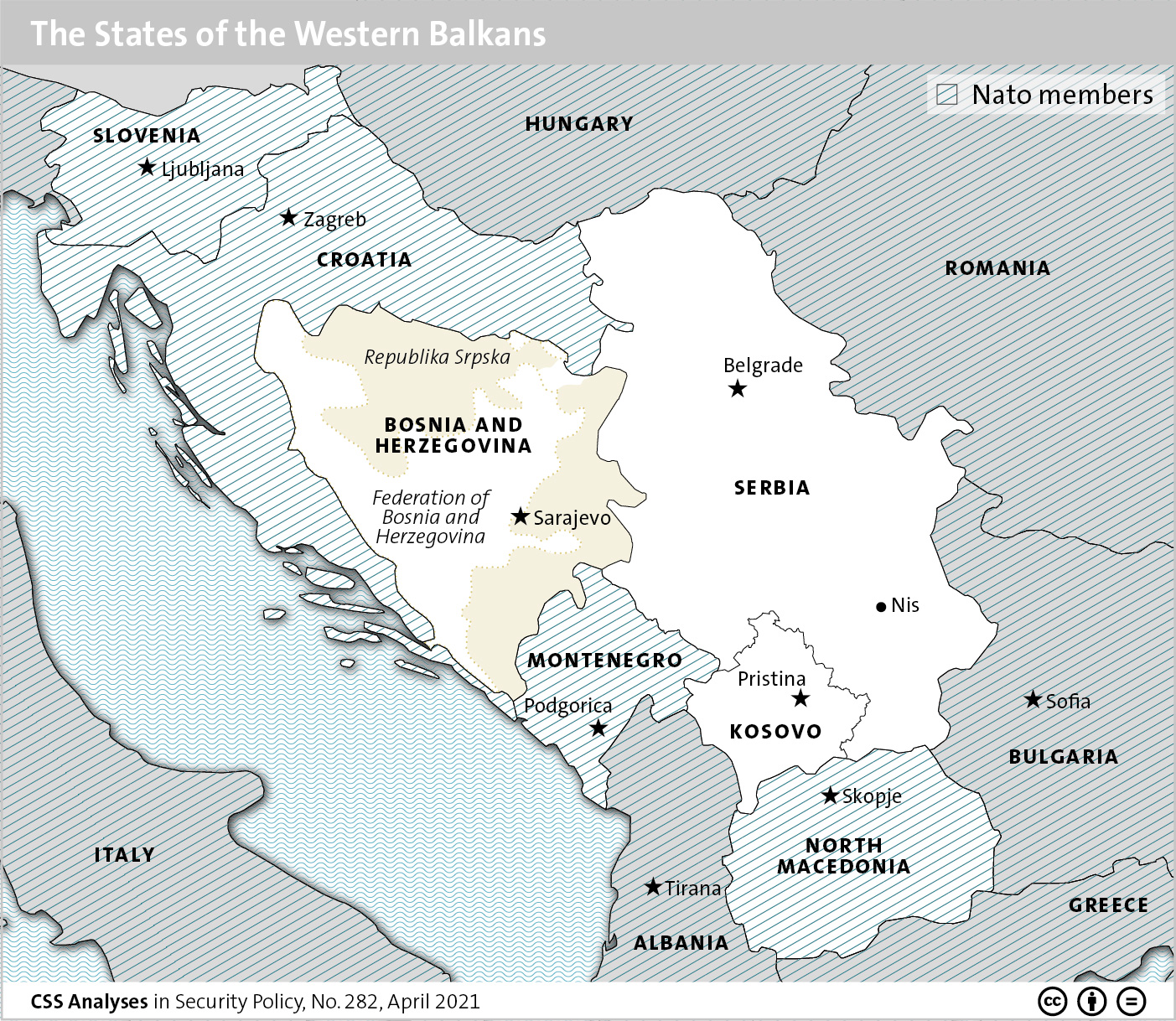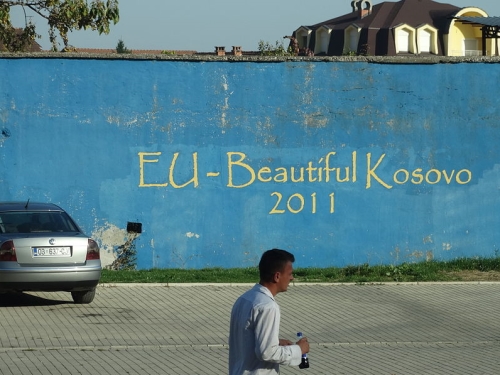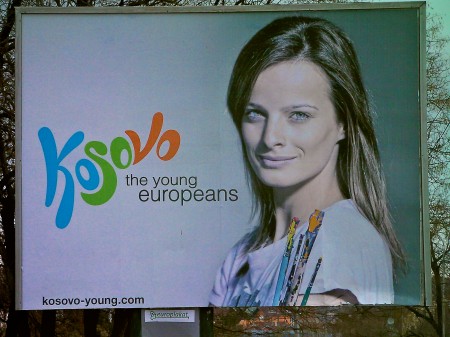
This week’s featured graphic maps the states of the Western Balkans. To find out about the rearmament in the Western Balkans, read Andrej Marković and Jeronim Perović’s CSS Analysis in Security Policy here.

This week’s featured graphic maps the states of the Western Balkans. To find out about the rearmament in the Western Balkans, read Andrej Marković and Jeronim Perović’s CSS Analysis in Security Policy here.

This article was originally published by International Crisis Group on 28 April 2017.
The Balkans was best known for minority problems. Today, the most bitter conflicts are between parties that appeal to majority ethnic communities. As recent turbulence in Macedonia shows, Eastern Europe could face new dangers if majority populism ends the current stigma against separatism for oppressed small groups.
The trouble in the Balkans today is not Russian meddling, though there is some of that, but a special case of the malaise afflicting Eastern Europe: unchecked executive power, erosion of the rule of law, xenophobia directed at neighbours and migrants and pervasive economic insecurity. The pattern varies from country to country but is palpable from Szczecin on the Baltic to Istanbul on the Bosporus. The countries of the Western Balkans – Albania, Bosnia and Herzegovina, Kosovo, Macedonia, Montenegro, and Serbia – have long tended to follow patterns set by their larger, more powerful neighbours. They are doing it again.
The ability of the European Union (EU) to fix problems in the Balkans is hamstrung when the same troubles persist within its own borders, sometimes in more acute form. Take erosion of democratic norms: Hungary over the past decade has slid from 2.14 to 3.54 on Freedom House’s “Nations in Transit” democracy score (lower is better). Poland’s decline is more recent but equally steep. Croatia is also backsliding. Almost all the Western Balkan states are declining, too, but more slowly.

This article was originally published by Friends of Europe on 25 November, 2014.
“Knock, knock, knockin’ on heaven’s door”
Bob Dylan
The perspective of joining the European family has proven to be the most effective mobilising factor to stabilise and reform the Balkans. It’s replaced the dark scenario of conflicts sparked by efforts to redraw borders along ethnic lines. It has undoubtedly been the EU’s most powerful geopolitical instrument, the latest illustration being the brokered Belgrade-Pristina agreement. Before the process reached the point of no return, however, the enlargement policy has been challenged, accession hopes dangerously watered down and the door slammed shut, for now.

It was hoped that the Brussels Agreement would lead to the normalization of relations between Kosovo and Serbia and stabilize the situation in Northern Kosovo in the process. Yet, while it’s true that ties between Pristina and Belgrade have improved, the same cannot be said about the Kosovar capital’s relations with its restive northern territory. Indeed, Pristina still lacks a dialogue with the Serbian minority in the north. Will a change of government help to rectify this situation?
The local elections that took place in Kosovo towards the end of 2013 were celebrated by the international community as a historic event and a turning point in the conflict over the status of the former Yugoslav province. They were also hailed by UN Secretary-General Ban Ki-moon as a milestone for the normalization of relations between Serbia and Kosovo and a clear sign that the Serb-dominated north of the disputed territory was finally prepared to become part of the Kosovar political system. Alongside the encouragement of ethnic Serbs to participate in the elections, Belgrade also committed to abolish its parallel political institutions. In return, Serb majority municipalities were granted the right to create a community with autonomy in areas such as economic development, health, education, urban and rural planning. Such initiatives helped to allay fears that the Serb minority would be dominated by an overwhelming Albanian majority.
Less than perfect conditions
However, the elections were far from being smooth, especially in the northern part of Kosovo. Voter turnout in Serb dominated municipalities was low and hovered between 15% and 20% of the electorate. The first round of elections had to be repeated in three polling stations after they were stormed by masked men. In the second round, ballots were transported to Kosovo Polje for no obvious reason instead of being counted at the polling station. In all rounds, employees of Serbian state-run enterprises were practically “ordered” to the polls. Whereas these circumstances would have warranted a critical assessment elsewhere, there seemed to be no appetite to engage in a prolonged discussion about the legitimacy of the elections – as long as they produced a result that everybody could live with.